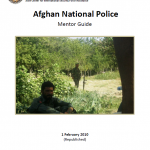From October 2010 to August 2011, the United Nations Assistance Mission in Afghanistan (UNAMA) interviewed 379 pre‐trial detainees and convicted prisoners at 47 detention facilities in 22 provinces across Afghanistan. In total, 324 of the 379 persons interviewed were detained by National Directorate of Security (NDS) or Afghan National Police (ANP) forces for national security crimes ‐ suspected of being Taliban fighters, suicide attack facilitators, producers of improvised explosive devices, and others implicated in crimes associated with the armed conflict in Afghanistan. Interviews were conducted at facilities including ANP detention centres, NDS facilities, Ministry of Justice prisons and juvenile rehabilitation centres; as a result of transfers, the interviews dealt with detainees located in 24 of Afghanistan’s 34 provinces. With two exceptions, Government officials from the ANP, NDS, Ministry of Justice and other departments cooperated with UNAMA and provided full access to detainees and facilities. UNAMA acknowledges the critical and extremely difficult role that NDS and ANP have in safeguarding national security in the current situation of armed conflict in Afghanistan. Torture and Abuse of Detainees by NDS and ANP UNAMA’s detention observation found compelling evidence that 125 detainees (46 percent) of the 273 detainees interviewed who had been in NDS detention experienced interrogation techniques at the hands of NDS officials that constituted torture, and that torture is practiced systematically in a number of NDS detention facilities throughout Afghanistan. Nearly all detainees tortured by NDS officials reported the abuse took place during interrogations and was aimed at obtaining a confession or information. In almost every case, NDS officials stopped the use of torture once detainees confessed to the crime of which they were accused or provided the requested information. UNAMA also found that children under the age of 18 years experienced torture by NDS officials. More than one third of the 117 conflict‐related detainees UNAMA interviewed who had been in ANP detention experienced treatment that amounted to torture or to other cruel, inhuman or degrading treatment.
Read more →


